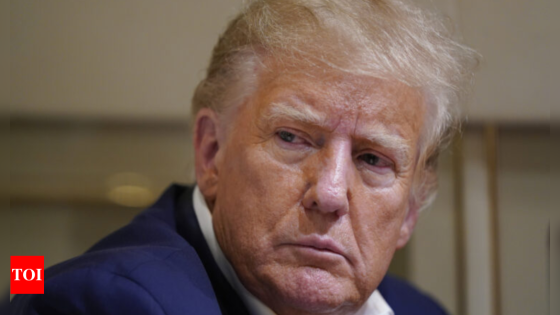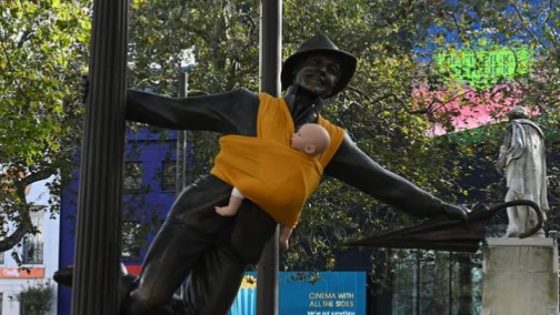The US Supreme Court on Monday ruled that former presidents have immunity from prosecution for actions taken within their constitutional authority while in office. This decision came in response to Donald Trump’s appeal to shield himself from federal criminal charges related to his efforts to overturn the 2020 election results. The ruling has significant implications for the scope of presidential immunity and the ongoing legal proceedings against Trump.
The Supreme Court’s decision overturned a lower court ruling that had rejected Trump’s claim of immunity.
Here are FAQs on the SC order on presidential immunity:
What did the Supreme Court decide regarding Trump’s immunity?
The Supreme Court ruled that former presidents are immune from prosecution for actions taken within their constitutional authority while in office.
The court’s 6-3 conservative majority includes three justices Trump appointed. Smith’s election subversion charges embody one of the four criminal cases Trump has faced.
This decision overturned a lower court ruling that had rejected Trump’s claim of immunity.
What charges is Trump facing in relation to the 2020 election?
In August 2023, Trump was indicted on charges of conspiring to defraud the United States, obstructing an official proceeding, and conspiring against Americans’ right to vote. He has pleaded not guilty to all charges.
Why did Trump’s legal team argue for “absolute immunity”?
Trump’s legal team argued that sitting presidents need “absolute immunity” to prevent them from facing “blackmail and extortion” by political rivals. They claimed that without such immunity, presidents could be unfairly targeted for actions taken during their tenure.
What are the potential implications of this ruling for future presidents?
The ruling sets a precedent that former presidents are immune from prosecution for official acts, raising concerns about accountability for severe offenses like bribery, treason, or even murder. It implies that a former president could only be charged after impeachment and conviction by Congress, a process that has never resulted in a president’s removal in US history.
How has public opinion responded to the concept of presidential immunity?
A May Reuters/Ipsos poll showed that only 27% of respondents believed presidents should be immune from prosecution unless impeached and convicted by Congress. This indicates a significant division in public opinion on the issue.
What is the current status of Trump’s other legal battles?
Trump was found guilty in May by a New York jury of falsifying business records to cover up hush money payments before the 2016 election. He faces additional charges in Georgia and Florida. In all these cases, he has pleaded not guilty and called them politically motivated.
What role does Judge Tanya Chutkan play in Trump’s federal election subversion case?
Judge Tanya Chutkan will decide whether the Supreme Court’s ruling requires some allegations against Trump to be dismissed and will set the trial’s timeline. Her decisions will significantly impact the progression of the case and its potential influence on the upcoming election.
How has the Supreme Court’s decision affected the timeline of Trump’s trial?
The ruling delays any potential trial until after the November 5 election, as no new trial date has been set following the decision. This delay benefits Trump by making it unlikely that the trial will conclude before the election.
How might the ruling impact Trump’s campaign for the 2024 election?
The ruling prevents any immediate trial, allowing Trump to continue his campaign without the burden of an ongoing trial. However, it also highlights the legal challenges he faces, which could influence voters’ perceptions as he campaigns against Democratic President Joe Biden.
What did Donald Trump say about the Supreme Court’s immunity ruling?
Donald Trump called the Supreme Court’s decision a “big win” for democracy. He expressed his pride in being an American and celebrated the ruling as a victory for the constitution and democracy on his Truth Social platform.
Trump posted his reaction in all caps on his Truth Social platform, stating, “Big win for our constitution and democracy. Proud to be an American!”
(With inputs from agencies)
The Supreme Court’s decision overturned a lower court ruling that had rejected Trump’s claim of immunity.
Here are FAQs on the SC order on presidential immunity:
What did the Supreme Court decide regarding Trump’s immunity?
The Supreme Court ruled that former presidents are immune from prosecution for actions taken within their constitutional authority while in office.
The court’s 6-3 conservative majority includes three justices Trump appointed. Smith’s election subversion charges embody one of the four criminal cases Trump has faced.
This decision overturned a lower court ruling that had rejected Trump’s claim of immunity.
What charges is Trump facing in relation to the 2020 election?
In August 2023, Trump was indicted on charges of conspiring to defraud the United States, obstructing an official proceeding, and conspiring against Americans’ right to vote. He has pleaded not guilty to all charges.
Why did Trump’s legal team argue for “absolute immunity”?
Trump’s legal team argued that sitting presidents need “absolute immunity” to prevent them from facing “blackmail and extortion” by political rivals. They claimed that without such immunity, presidents could be unfairly targeted for actions taken during their tenure.
What are the potential implications of this ruling for future presidents?
The ruling sets a precedent that former presidents are immune from prosecution for official acts, raising concerns about accountability for severe offenses like bribery, treason, or even murder. It implies that a former president could only be charged after impeachment and conviction by Congress, a process that has never resulted in a president’s removal in US history.
How has public opinion responded to the concept of presidential immunity?
A May Reuters/Ipsos poll showed that only 27% of respondents believed presidents should be immune from prosecution unless impeached and convicted by Congress. This indicates a significant division in public opinion on the issue.
What is the current status of Trump’s other legal battles?
Trump was found guilty in May by a New York jury of falsifying business records to cover up hush money payments before the 2016 election. He faces additional charges in Georgia and Florida. In all these cases, he has pleaded not guilty and called them politically motivated.
What role does Judge Tanya Chutkan play in Trump’s federal election subversion case?
Judge Tanya Chutkan will decide whether the Supreme Court’s ruling requires some allegations against Trump to be dismissed and will set the trial’s timeline. Her decisions will significantly impact the progression of the case and its potential influence on the upcoming election.
How has the Supreme Court’s decision affected the timeline of Trump’s trial?
The ruling delays any potential trial until after the November 5 election, as no new trial date has been set following the decision. This delay benefits Trump by making it unlikely that the trial will conclude before the election.
How might the ruling impact Trump’s campaign for the 2024 election?
The ruling prevents any immediate trial, allowing Trump to continue his campaign without the burden of an ongoing trial. However, it also highlights the legal challenges he faces, which could influence voters’ perceptions as he campaigns against Democratic President Joe Biden.
What did Donald Trump say about the Supreme Court’s immunity ruling?
Donald Trump called the Supreme Court’s decision a “big win” for democracy. He expressed his pride in being an American and celebrated the ruling as a victory for the constitution and democracy on his Truth Social platform.
Trump posted his reaction in all caps on his Truth Social platform, stating, “Big win for our constitution and democracy. Proud to be an American!”
(With inputs from agencies)
Source Agencies




